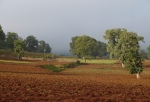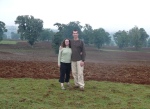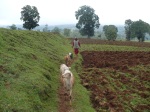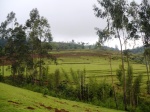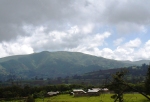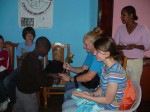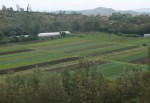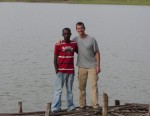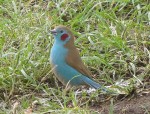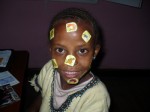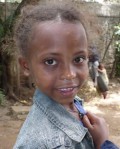One hundred days ago we arrived in Addis Ababa. It is amazing the chang tes that can occur in that short amount of time. At home there are changes that have been going on without us. Here in Ethiopia the changes have come fast and frequent. When we first arrived there was the excitement of a new place but that quickly changed to an everyday routine. We made new relationships that soon changed to comfortable friendships. In Chencha the formality of guests became the closeness of family.
God has been working at a speed that we are not accustomed to. We know that only He has been able to accomplish what has been done in 100 days. The Drop-In Center officially started its regular programs. The ministry license was obtained from the government. We now have the Kota Ganate Agriculture Project proposal completed and a prime piece of land set aside for its use. Less obvious are the changes that have occurred in the children who regularly attend the Drop-In Center programs.
Yesterday was the last day for us to be part of the Drop-In Center program. The children come on Monday, Wednesday and Friday. As part of our last helpful act we washed the children’s clothes by hand and tried to rid them of the body lice (also called clothes lice) that reside in their bitam coshasha (very dirty) clothes. While we washed their clothes the children put on nice new clothes that were donated by our new friends from Washington. At the end of the program their clothes were still wet. So, as a trial, we let the children leave with their new clothes. This has been an area of great debate since many of the children, though they love the nice new clothes, will abandon the nice clothes and revert back to rags in order to beg. It’s hard to convince a passerby that you need änd birr when you are wearing new foringie clothes. All of the children were bitam (very) excited to leave with their nice duds. Beti, however, changed back into her regular clothes, some of which were still wet, and handed us a folded pile of the new clothes. When asked why she didn’t want to wear the new clothes like the other kids, she said if she went home with the new clothes that her mother would expect her to sell them. She was obviously embarrassed and worried about our reaction. We assured her that we appreciated her honesty and that the new clothes would be at the Drop-In Center for her to wear when she returned. This type of honesty is something new in a lot of the children who attend the Drop-In Center programs. We, along with Bisrot stood in amazement at her confession. It may only be evident to us in small ways and gestures, but God is working in the lives of the CHE children.
We have been so blessed to be able to be witnesses and participants in the changes God has orchestrated the in the last 100 days. Many of the changes started long before we came and will continue long after we have left.
We will be boarding an Ethiopian Air plane tonight and saying good-bye to our friends, who now more like family. God has more plans in store for us and for CHE. We will just have to be patient and wait.
- Beti posing in her new clothes
- Last good-bye prayer


